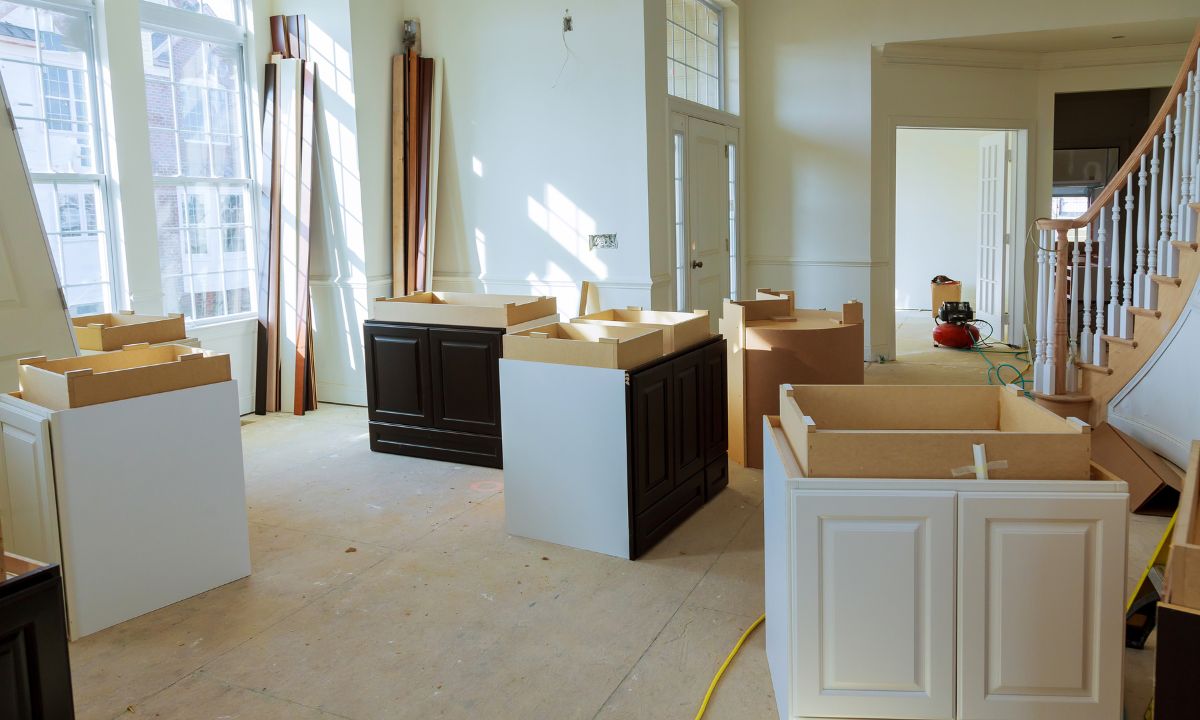 In the wake of the COVID-19 pandemic, the way we work underwent a profound change in the way most people do business. It became apparent that working from home was more than a temporary change. As companies adapted to remote work models, many employees found themselves unleashed from traditional office spaces.
In the wake of the COVID-19 pandemic, the way we work underwent a profound change in the way most people do business. It became apparent that working from home was more than a temporary change. As companies adapted to remote work models, many employees found themselves unleashed from traditional office spaces.
The rise of remote work not only reshaped our professional lives but also had a profound impact on our housing needs and choices. As we move forward, it’s essential to understand the dynamics of this shift and how it shapes the future of housing.
The Rise of Remote Work: Remote work isn’t merely a temporary response to a crisis; it’s a paradigm shift in how we conceptualize work. Companies across various industries have recognized the benefits of remote work, including reduced overhead costs, improved work-life balance, and access to a broader talent pool. Employees, too, have embraced the flexibility and autonomy that remote work offers.
Impact on Housing Needs: Geographic Flexibility: With the ability to work from anywhere, individuals and families are no longer tied to specific locations for job opportunities. This newfound flexibility has fueled a migration away from dense urban centers to suburbs, smaller towns, and even rural areas. As a result, housing markets in these areas have experienced increased demand, leading to rising property values and competition among buyers.
Home Office Space: The traditional notion of a home has evolved to accommodate the demands of remote work. Many households now require dedicated office spaces equipped with high-speed internet, ergonomic furniture, and soundproofing to create a conducive work environment. Homebuyers are prioritizing properties with flexible layouts that can accommodate both living and working needs.
Outdoor Amenities: As remote work blurs the boundaries between professional and personal life, outdoor spaces have become invaluable. Properties with features such as private gardens, spacious balconies, or access to parks and nature trails are highly sought after. The desire for outdoor amenities reflects a growing emphasis on holistic well-being and work-life integration.
Technological Infrastructure: Reliable internet connectivity is no longer a luxury but a necessity for remote workers. Access to high-speed internet has become a determining factor in housing decisions, particularly in rural and underserved areas. Communities and policymakers must invest in upgrading infrastructure to support the evolving needs of remote work.
The Future of Work-From-Home: While remote work offers numerous advantages, it also presents challenges that must be addressed. Maintaining work-life balance, combating isolation, and fostering collaboration are ongoing concerns for remote workers and employers alike. As we navigate the future of work-from-home, hybrid models that combine remote and in-person work are likely to become more prevalent, offering the best of both worlds.
Adapting to Change: The shift towards remote work has profound implications for individuals, communities, and the housing market as a whole. As consumers, it’s essential to evaluate our housing needs in light of these changes and prioritize properties that align with our evolving lifestyles. Additionally, policymakers, real estate developers, and urban planners must anticipate and respond to shifting demand patterns to ensure the continued vitality and sustainability of our communities.
The future of work-from-home holds tremendous promise for redefining how we live and work. By embracing the opportunities presented by remote work and adapting our housing choices accordingly, we can create spaces that support productivity, well-being, and connectivity in the years to come. As we embark on this journey, let us remain open to innovation, collaboration, and the endless possibilities that lie ahead.

 Buying your first home is an exciting milestone, but it can also be an overwhelming process, especially when it comes to understanding mortgages. For many first-time homebuyers, the world of mortgages can seem complex and filled with unfamiliar terminology. However, with a little knowledge and guidance, navigating the mortgage process can become much more manageable. In this guide, we’ll break down the basics of mortgages, explain key terms, explore different types of mortgages, and outline the application process for beginners.
Buying your first home is an exciting milestone, but it can also be an overwhelming process, especially when it comes to understanding mortgages. For many first-time homebuyers, the world of mortgages can seem complex and filled with unfamiliar terminology. However, with a little knowledge and guidance, navigating the mortgage process can become much more manageable. In this guide, we’ll break down the basics of mortgages, explain key terms, explore different types of mortgages, and outline the application process for beginners. Whether you’re a first-time homebuyer or a seasoned homeowner considering a refinance, the term “escrow account” often looms as a source of confusion. Yet, understanding the ins and outs of escrow accounts is crucial for managing your homeownership responsibilities effectively. In this article, we’ll address some common questions and concerns regarding escrow accounts to shed light on their importance and functionality.
Whether you’re a first-time homebuyer or a seasoned homeowner considering a refinance, the term “escrow account” often looms as a source of confusion. Yet, understanding the ins and outs of escrow accounts is crucial for managing your homeownership responsibilities effectively. In this article, we’ll address some common questions and concerns regarding escrow accounts to shed light on their importance and functionality. While watching shows like Property Brothers, Flip or Flop, Fixer to Fabulous, Fix My Flip and Fixer Upper may paint a rosy picture of buying a remodeled home, the reality often differs significantly. While these shows depict smooth transformations and stunning results, real-life experiences with remodeled homes can be far more complex and challenging.
While watching shows like Property Brothers, Flip or Flop, Fixer to Fabulous, Fix My Flip and Fixer Upper may paint a rosy picture of buying a remodeled home, the reality often differs significantly. While these shows depict smooth transformations and stunning results, real-life experiences with remodeled homes can be far more complex and challenging. A vacation is a time to relax and unwind, but it’s essential to ensure that your home remains safe while you’re away. Nobody wants to return from a fantastic trip to find their home has been broken into. With a few precautionary measures, you can significantly reduce the risk of your home becoming an easy target for theft. Here are ten tips to help secure your home while you’re on vacation:
A vacation is a time to relax and unwind, but it’s essential to ensure that your home remains safe while you’re away. Nobody wants to return from a fantastic trip to find their home has been broken into. With a few precautionary measures, you can significantly reduce the risk of your home becoming an easy target for theft. Here are ten tips to help secure your home while you’re on vacation: